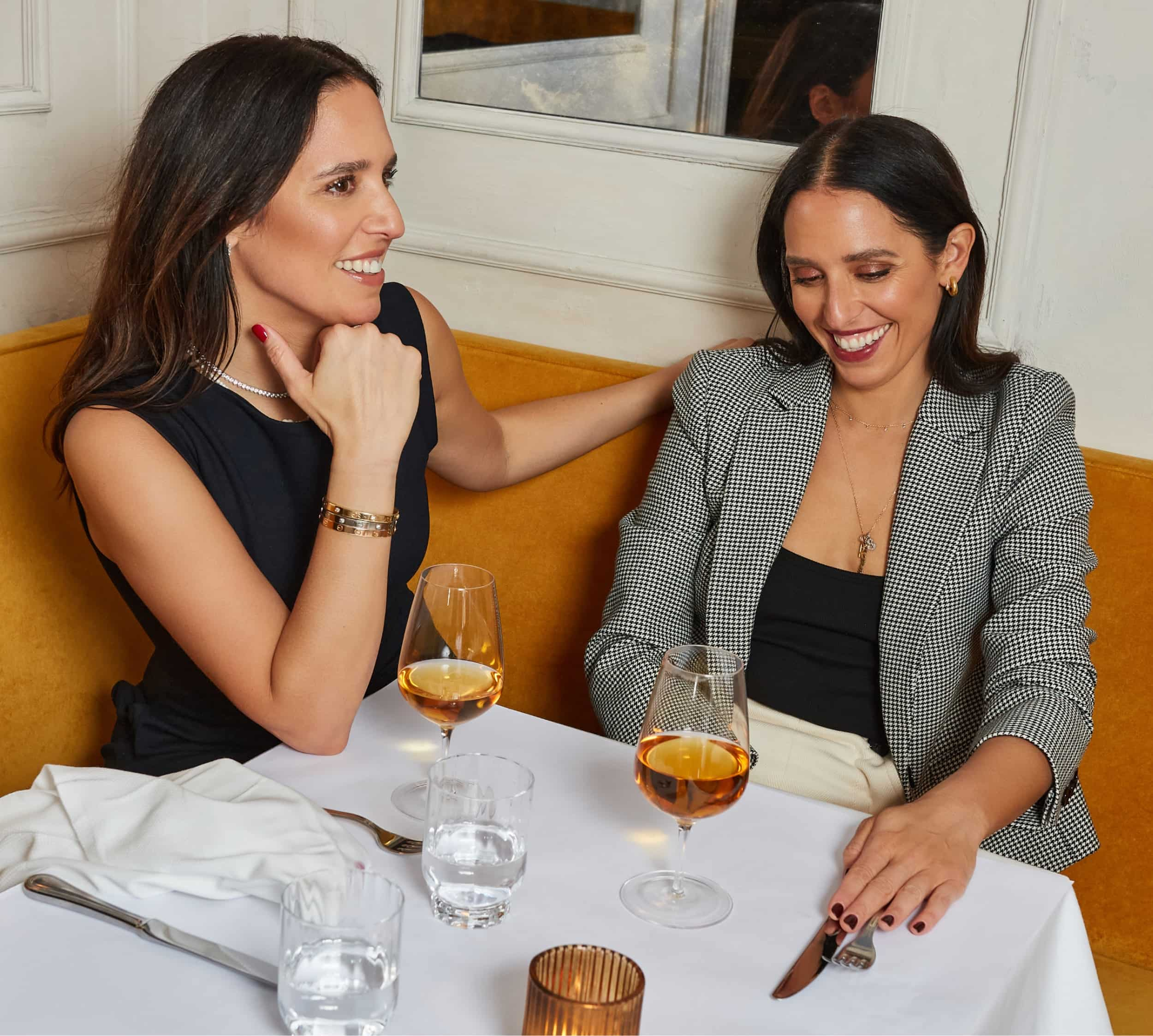
IN CONFIDENCE | Jennifer and Nicole Vitagliano
There’s nothing like an honest conversation with someone you admire. That’s how we had the idea for ‘In Confidence’, a series where we sit down with powerful, inspiring women who are trailblazers in their own field. We’ll have open conversations about how they have navigated their career successes and challenges, and at the same time we’ll explore how they find confidence, whether that’s with a powerful uniform they rely on every morning or small daily rituals that help maintain balance.

The restaurant Raf’s is housed in a century-old Sicilian bakery on a tree-lined section of Elizabeth Street in downtown Manhattan. The Vitagliano twins—Nicole is older, by just a few minutes—opened it last year, and immediately it became one of the hardest tables to book for dinner. Serving freshly made pasta and wood-fired dishes, the menu is perfect a expression of their Sicilian roots and the French training of their chef, Mary Attea. Though they never intended to helm a mostly all-woman team, they have, having also hired pastry chef Camari Mick to help expand Raf’s to serve breakfast, lunch, and a mouth-watering selection of pastries that sell out on most days. Just next door is the Vitaglianos’ first restaurant, the Michelin-starred Musket Room—also run by Attea—whose tasting menu offers a more formal dining experience to Raf’s casual ambiance.
On top of building their restaurant empire (a third location is opening later this fall), together they also co-parent Nicole’s daughter, Raffi, who is named after their paternal grandmother - both inspired the restaurant’s name. The twins speak quickly, often finishing each other’s sentences as we talk about their lives through food, covering everything from foraging with their grandparents to food trucks.
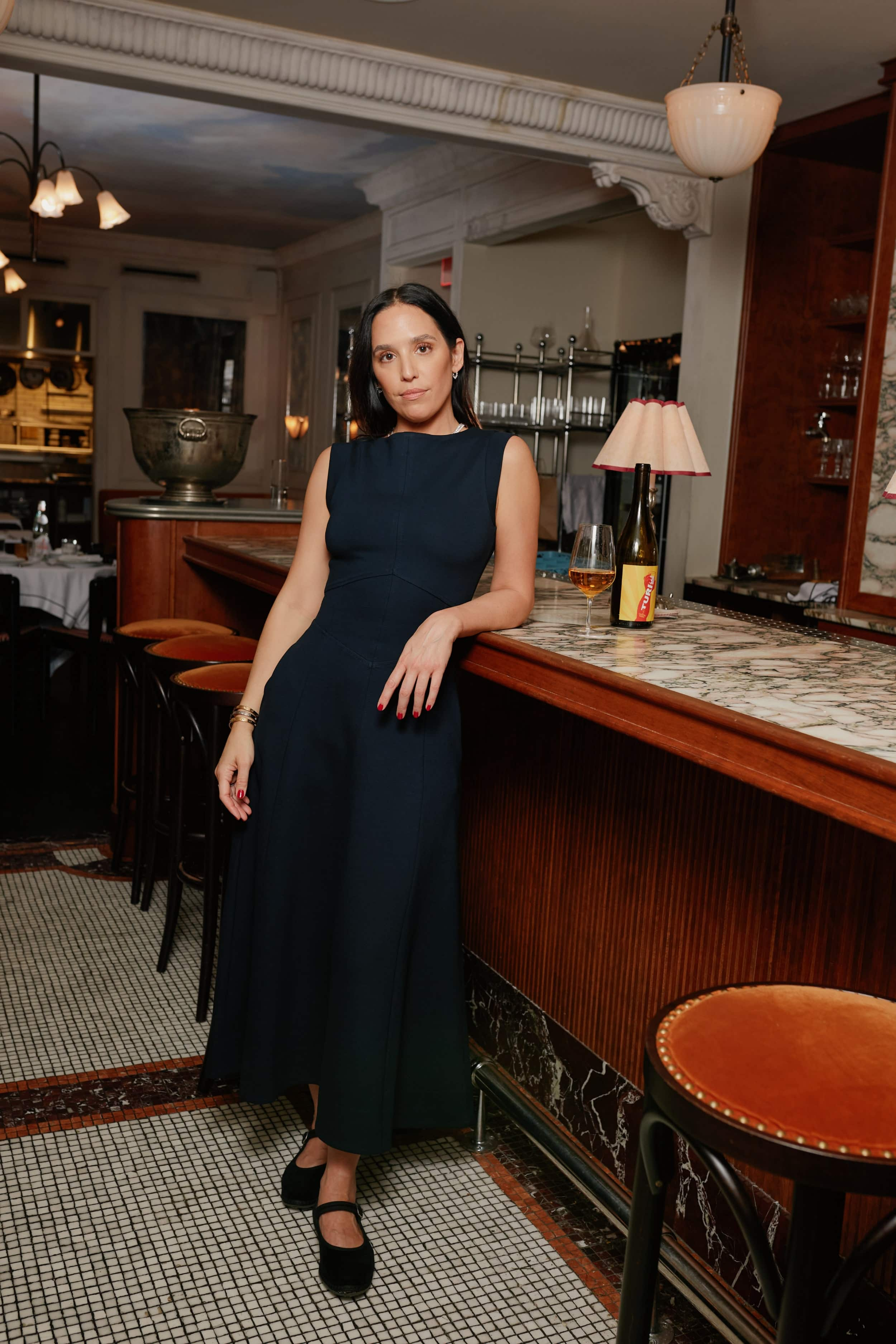
How important was food for you both growing up?
Nicole: Food’s always been a big part of our life. We’ve always wanted to be in food and didn’t know what career path we’d take. [We] didn’t really want to go to culinary school, but always wanted to do what we’re doing now, which is host people and host dinner parties and bring people together and entertain. That’s the fun part of it. We come from a family of Sicilian cooks - our mother is an amazing cook.
Jennifer: Some of our earliest memories of food are also with our grandfather. In their backyard in Pennsylvania, we would compost everything, grow vegetables. I remember foraging and picking everything, preparing all the vegetables and then cooking them in his wood-fired oven that he built.

What do you think led you into opening restaurants?
Jennifer: Opening Raf’s is very full circle for us. Raf’s has been a Sicilian bakery for a hundred years. Those wood-fired ovens you see in the kitchen have been here for a century.
Nicole: They were built by a woman named Angelina Bivona in 1923. Even then, this place was female-owned, which we find so cool. She was a Sicilian immigrant, which obviously relates to our heritage. At the time, she named it Angie’s French Italian Bakery. We restored the storefront to the way it looked from 1939. She called it French-Italian because Italians weren’t very highly regarded at the time, but we thought it was a nice way to honor our Sicilian immigrant grandparents. Our chefs are French classically trained and we didn't want to be a regional Italian restaurant, so the food we serve is also French-Italian.
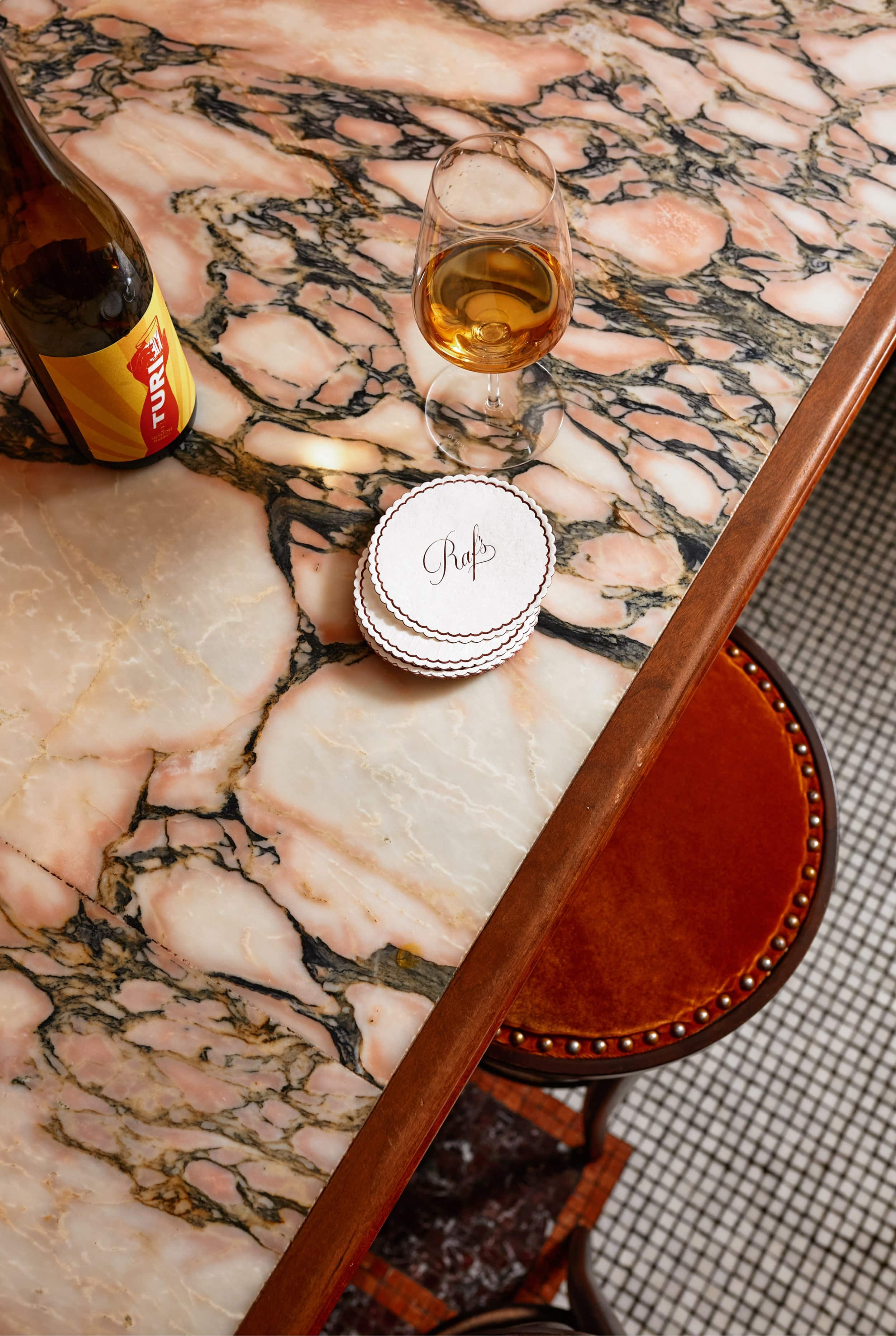
You were already running the highly acclaimed Musket Room next door. Tell us how you eventually opened Raf’s?
Jennifer: I opened Musket Room for another chef 11 years ago. I took it over full-time six years ago and changed the concept. About a month after I hired Chef Mary [Attea], the pandemic happened, and we had to furlough everyone. I was trying to figure out what to do. We already had plans to turn it into more of a neighborhood restaurant. We wanted people to know that it’s a place where you can come and just sit at the bar and have a drink and eat some oysters, rather than order a tasting menu, which is what we were known for at the time. But all of a sudden, it was just the two of us and we were just serving the neighborhood. It was good moment for us to figure out what kind of restaurant we wanted to run and what kind of environment we wanted to create.

Nicole: We were suddenly competing with every other restaurant in the city offering takeout. We didn’t think anyone would order a tasting menu on Caviar, so we decided to offer a three-course option: chicken, bread, and salad. At first, it was just crickets. And then all of a sudden, the ticket printer just went crazy.
It was like a movie. Jen was downstairs helping chef in the kitchen. There was no expectation, but changing our approach just a little bit went a really long way. Then we had this idea to bring our friends a milk truck from a farm upstate. We called it MR All Day. That’s where Bread & Spreads was conceived. We did little bottled Negroni’s and we brought Camari on full-time to do doughnuts and breakfast sandwiches.
Jennifer: It was a billboard for our restaurant. We were selling it on the street, for everyone who walked by.
Nicole: It was extremely successful. We already had that little itch to do something more approachable. The property for Raf’s wasn’t even on the market, but we had to have this space. So that’s how Raf’s was conceived.

What would you say are each other's strengths and weaknesses?
Nicole: Jen’s strength is she that she’s taught herself every facet of opening a restaurant. For better or worse, she knows how to do it quicker, cheaper, faster. She knows where to source the tiles. She knows where to source the wine. Sometimes this is a good quality because she knows how to do everything. But sometimes she shouldn’t be doing it herself. So it’s her best and worst quality because it’s probably better to teach someone else how to do it. Because then you get stuck doing it for 10 years.
Jennifer: My sister’s best quality is that she’s very passionate and determined. She’s very loving to her daughter. She’s a great mom. Her worst quality is that she’s a short fuse.
Nicole: Correct. Don’t activate me.
What inspires you each?
Jennifer: We’re both very passionate about our goals and our family and the way we treat our team and the way our team treats other people.
Nicole: My daughter is a huge inspiration. It’s a balance between showing her a strong work ethic and also being present. And be good role models. Of course, it’s important to show her hard work, but it’s also important to give her our full attention and show her that she’s worthy of that as well.
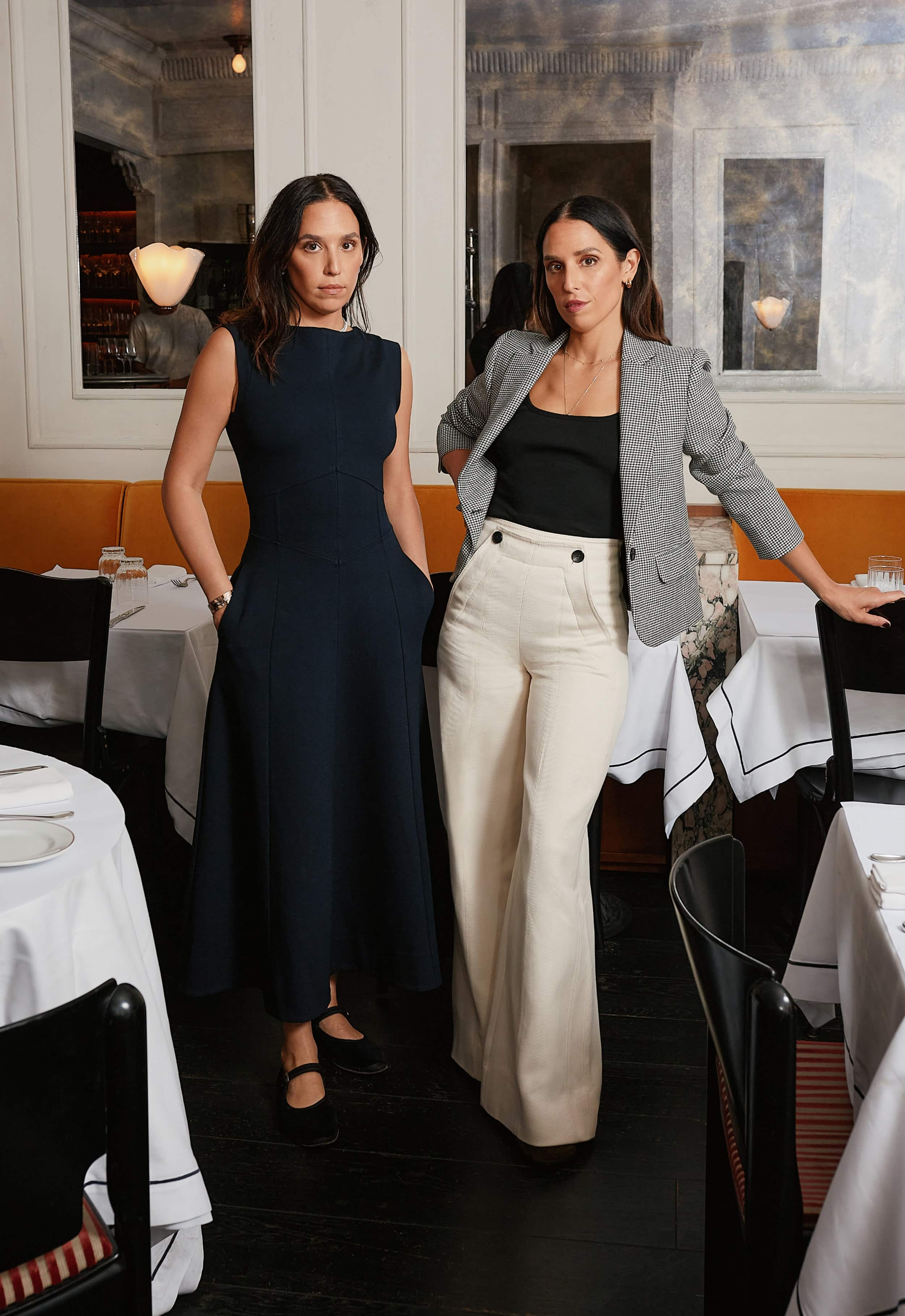
Does Raffi love it here?
Nicole: She goes downstairs and she’s all, “Corner, corner!” She goes and gets her colored pencils and draws on the table paper. She’s very proud.
What’s it like being women in the restaurant world?
Nicole: We’re just in the restaurant world. It doesn’t feel like being women in the restaurant world, right?
Jennifer: I do think there is a camaraderie around being a woman in this business. We know every female operator and chef in the city and we’re all rooting for each other. We’ve definitely built a community in this industry. Women in business in New York in general are very supportive of each other. When you work with other women, there is an ease in communicating, which is something we discovered in putting our team—who happen to be predominantly female—together. We didn’t mean for it to happen that way, but it did.
How would you describe your personal style?
Nicole: Jen definitely wears more flowy Bohemian styles and I like a very structured tailored silhouette.
Jennifer: I find myself dressing for day to night. Sometimes I get dressed at eight in the morning and I know I’m going to be in that outfit through the evening, so I take that into consideration. For us, work is both social and forward facing. We meet new people in here every day. Sometimes I’ll be in jeans and sneakers and a T-shirt, but I have a lot of meetings when I have a lot of VIPs in the dining room every day and lately, I like to be a bit more polished.
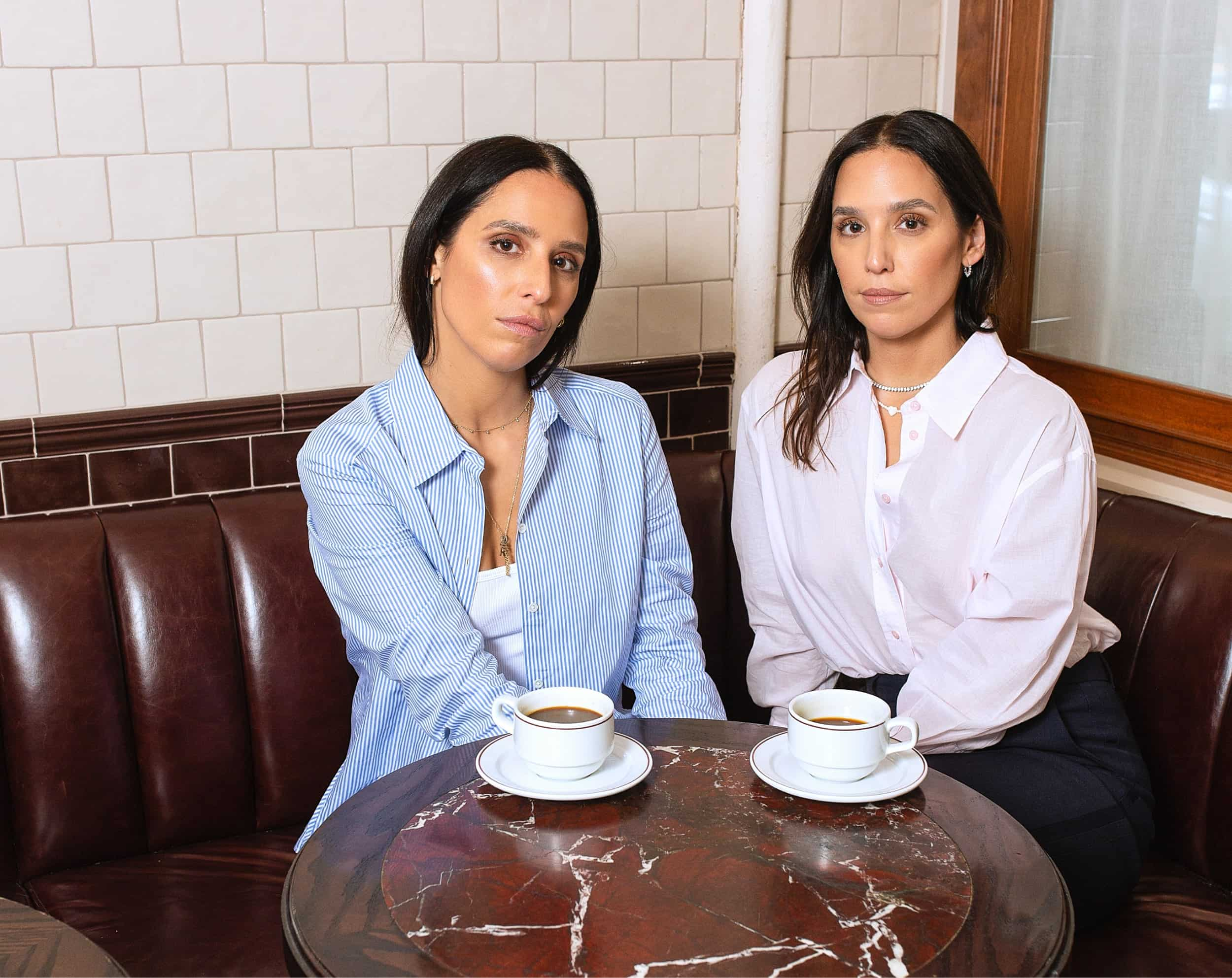
What would you say are your goals are for the next five years?
Jennifer: I would like to keep growing this business to a point where it’s sustainable for us, where we all get to enjoy our business and do what we’re good at doing, but where it doesn’t feel overwhelming, where we’re not racing to the finish line every day. I also want to be more selective about our staff, our partners, our investors, the projects we take on. We’re not just taking things on because they’re good opportunities. We’re taking them on because they feel in line with our goals and our values, which for me, after working for other people and building their restaurants for many years, is very rewarding.
Finally, and most importantly - If you each had to be a pastry on your menu, which one would you be?
Nicole: For me, a canelé because it has a really thick, hard exterior and it’s really soft and tender in the inside. It captures my essence.
Jennifer: Mine would be our pain au chocolat. It’s sweet, but it’s also a little bit salty.